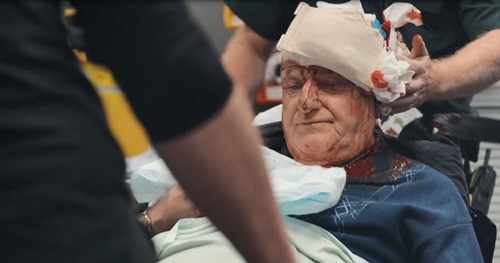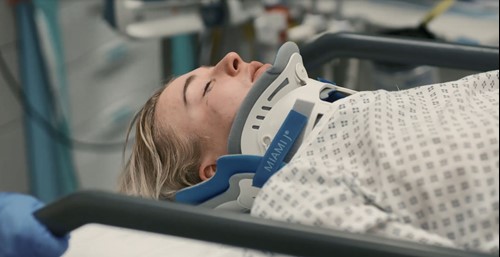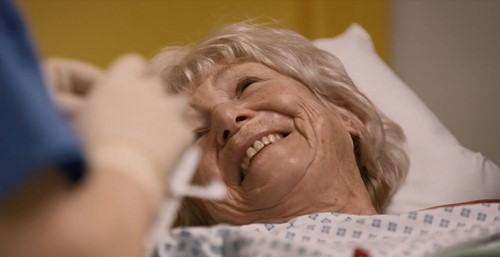In this episode, 26 year old Tino is rushed into hospital after a car crash. It’s clear that he is suffering from excruciating abdominal pain. Immediately suspicious that the force of the crash could have done more widespread damage, Trauma Team Leader Julie Norton rushes her patient to scan, where her worst fears are revealed. Tino is suffering from a potentially life-threatening aortic tear, which if left untreated, could burst – killing him in seconds.
For Frank, the threat of blood loss is also a major issue. Having fallen backwards as he attempted to go up a shopping centre escalator, Frank impaled his head on the metal step and was dragged feet first up the escalator. By the time he is rushed into the hospital, he has already lost a huge amount of blood from a major vein in his head and Trauma Team Leader Richard Fawcett, knows he must bring the bleeding under control, before it’s too late.
Meanwhile first year university student Izaac, is rushed in for surgery to remove a tumour which is sitting perilously close to the part of his brain which controls his speech. Having lived with regular and traumatic seizures for over 2 years, he must now face a potentially life changing three-hour procedure where his skull is drilled open and the tumour removed – all whilst he is awake.
And finally, time is of the essence for Mohan who is rushed in gasping for air during a potentially catastrophic asthma attack. Fearing that the lack of oxygen will have devastating consequences, Trauma Team Leader Raj springs into action before his patient’s lack of oxygen causes his heart to stop.

 A 73-year-old Staffordshire granddad who looked like he’d been “mauled by a lion” after falling on a moving escalator is to feature in the first episode of the latest series of 999: Critical Condition, the exclusive documentary charting the life and death decisions and actions of staff at University Hospitals of North Midlands.
A 73-year-old Staffordshire granddad who looked like he’d been “mauled by a lion” after falling on a moving escalator is to feature in the first episode of the latest series of 999: Critical Condition, the exclusive documentary charting the life and death decisions and actions of staff at University Hospitals of North Midlands.



